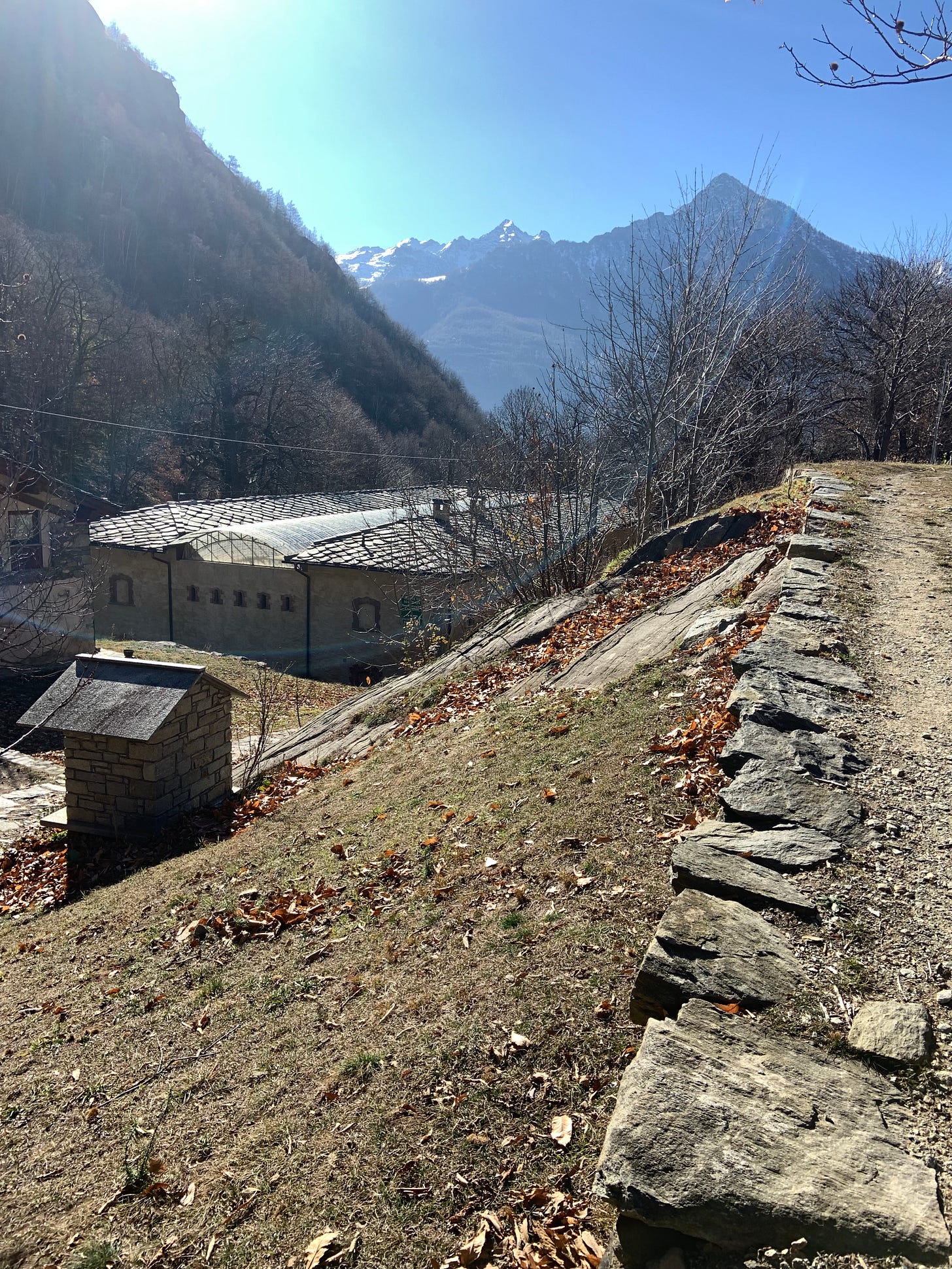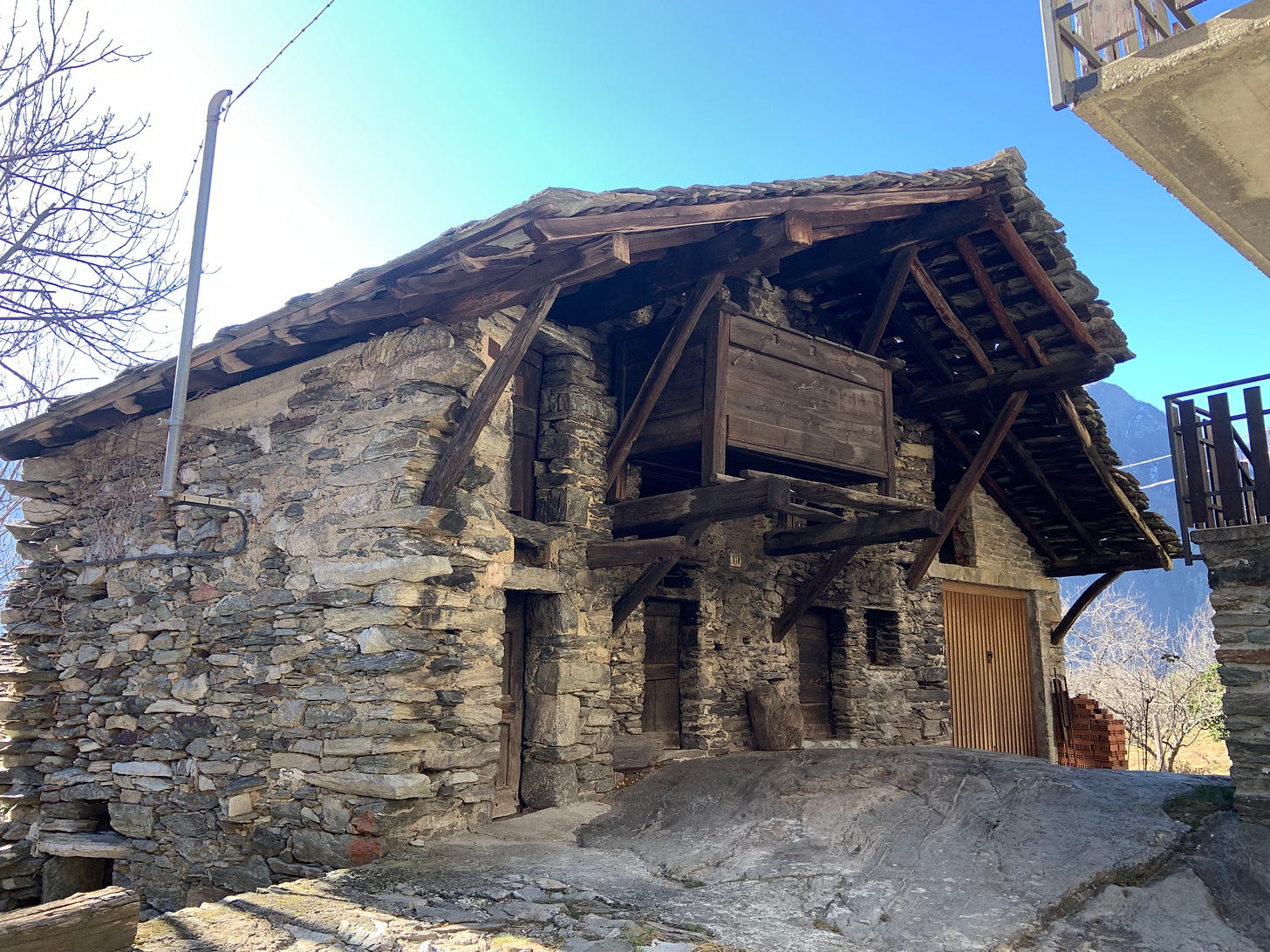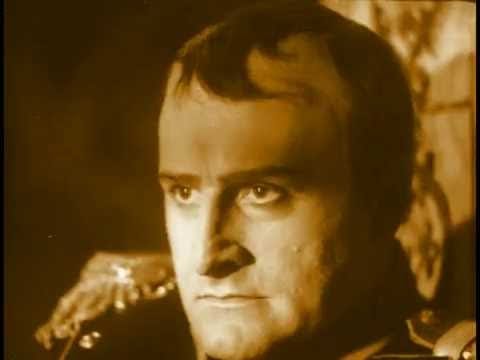Villagers and Soldiers Against Napoleon's Troops
In the picturesque Aosta Valley, nestled between towering mountains, lies the historic village of Machaby, adjacent to the ruins of Fort Lucini.
The story of Fort Lucini dates back to the 18th century, when the region was a critical point for strategic defense during the tumultuous period of the Savoy dynasty and its conflicts with neighboring powers.
The tale begins in 1743, when the fort was commissioned by Carlo Emanuele III, Duke of Savoy, as part of a broader military initiative to safeguard the duchy’s territories against encroaching French threats. Built atop a rocky outcrop, Fort Lucini overlooked the valley, serving as both a watchtower and a military base.
The villagers of Machaby, primarily farmers and shepherds, were initially wary of the soldiers who arrived with the fort. Their lives shifted dramatically as the soldiers required provisions and support. However, this also brought new opportunities for trade and interaction. Young women from Machaby would often visit the fort to deliver fresh bread, cheese, and vegetables.
Among them was a spirited young woman named Elle. With fiery red hair and a passionate heart, she caught the eye of Lieutenant Alessandro, a soldier stationed at the fort. Shy smiles marked their initial meetings across the breakfast table, but they soon became long conversations. They shared stories of their lives—Elle, hoping to keep the family farm, and Alessandro, revealing dreams of returning to his hometown after serving his duty.
As weeks passed, tensions grew in the valley. News of an impending French invasion spread, leading to early skirmishes with rival forces. Fort Lucini became a central hub for assembling troops. The village of Machaby, once quiet, became a hive of activity, with soldiers patrolling the hills and villagers fleeing to the fort's safety.
One fateful night, an ominous atmosphere settled over the valley, and rumors of a French advance reached Fort Lucini. Lieutenant Alessandro knew that the fort's defenses were insufficient. With only days to prepare, he and Elle devised a plan to fortify the castle.
Together, they rallied the villagers and soldiers. Under the cloak of darkness, they worked tirelessly, gathering stones, filling baskets with earth, and constructing makeshift barricades. On the eve of the battle, as fear gripped the hearts of many, Elle stood before the assembled villagers and soldiers, urging them to fight for their homes and future.
When the dawn broke, the French army approached, but the valiant efforts of the defenders proved formidable. The battle raged throughout the day, with sharp gunfire echoing across the valley. Elle and Alessandro fought side by side, determination visible in their eyes. Thanks to their devised defenses and the relentless spirit of the villagers, the French were repelled with heavy losses.
As night fell, a weary silence settled after the chaos. The sunlight faded behind the mountains, casting a golden hue over the valley. Fort Lucini stood tall, a testament to the courage and unity of those who defended their land.
After the dust settled and peace returned, Elle and Alessandro realized their bond had grown stronger through the experience. With the threat behind them, they looked toward the future—a future of rebuilding their homes and lives together. They eventually married, and their story became a cherished legend in Machaby.
Today, Fort Lucini (a hotel with 50 places) offers visitors a glimpse into military history and the lives of those who once called the valley home. The echoes of bravery, love, and community still linger in the air, reminding all who wander through the ruins that history is not just made of battles and treaties. It comprises the people who lived, loved, and fought for what they cherished.
This is another part about this confrontation:
Memories Of The Passage Of Napoleon's Troops Along The Fort Of Bard
I wanted to tell you a story about knights and their lives today because I remembered the song you can hear in this video. The song is about the life of Henry IV, the French king. It has nothing in common with Napoleon. But the movie itself was an excellent picture of Napoleon’s adventure near the
P.S.
This story is a fiction.
ARE YOU INTERESTED IN OTHER STORIES?
They are here: https://amzn.to/42zESYu
P.S.
“Either My Son Or Nobody” is now available in a third edition, only in digital formats.
"Those Eyes Behind The Glass Door" is available, too.
I do not have paperbacks.
Contact me at liudmila.books@gmail.com for a special price to purchase my stories specifying your preferred file format. I answer in one working day typically.
I can add dedication on request.











